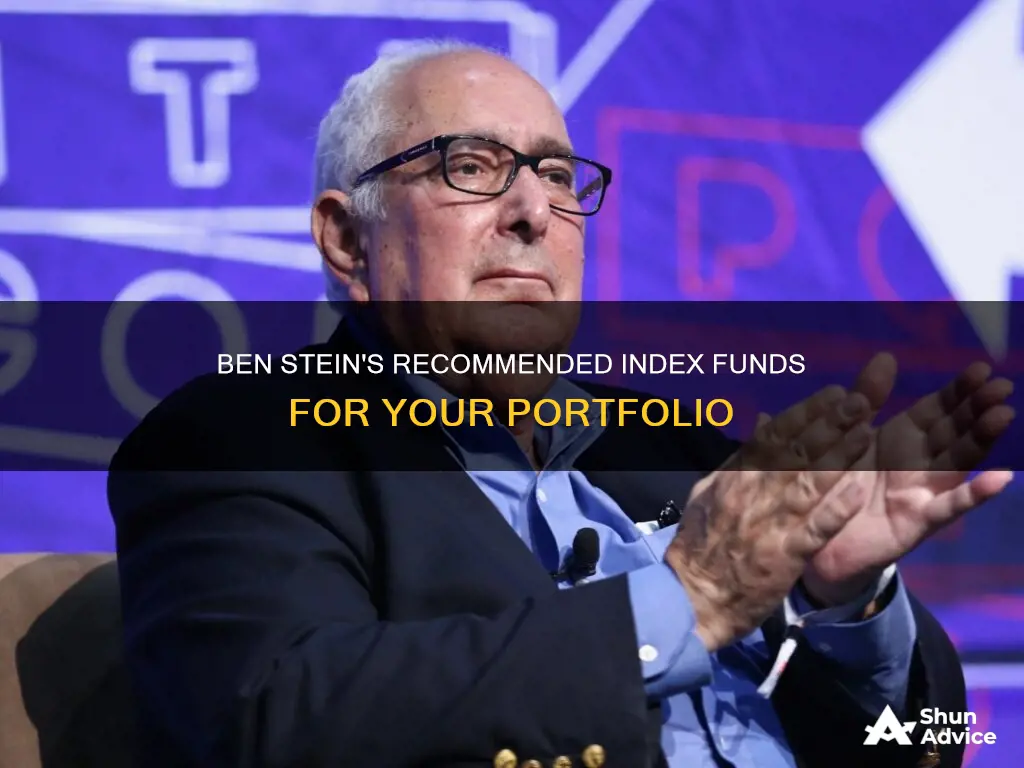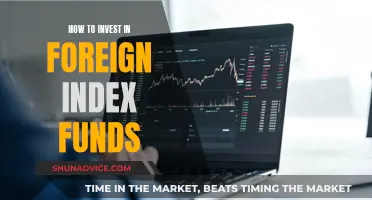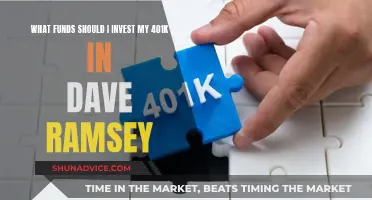
Ben Stein, the economist, actor, author, and television commentator, is a big fan of index funds and ETFs. In his book, 'How To Really Ruin Your Financial Life and Portfolio', Stein says that the evidence of the superiority of index funds over individual stock selection has become overwhelming. He recommends buying the whole market using exchange-traded funds, such as the SPDR S&P 500 (SPY) and the Vanguard Total Stock Market ETF (VTI). He also suggests putting about 15% of your portfolio into cash.
In an interview with IndexUniverse.com, Stein said he couldn't understand why anyone would invest in any other way than with ETFs. He also said that believing they can beat the market is the biggest mistake most investors make.
Stein has proposed a long-term portfolio with the following composition: 30% in Fidelity Spartan Total Market Index (FSTMX) or Total Stock Market ETF (VTI); 15% to 20% in iShares MSCI EAFE Index (EFA); 10% in iShares MSCI Emerging Markets Index (EEM) or Emerging Markets 50 ADR (ADRE); 10% in iShares Cohen & Steers Realty Majors (ICF); and 10% in iShares Russell 2000 Value Index (IWN).
What You'll Learn

iShares MSCI EAFE Index (EFA)
The iShares MSCI EAFE ETF seeks to provide investors with exposure to a diverse range of companies based in Europe, Australia, Asia, and the Far East. By investing in this ETF, individuals can gain access to over 900 EAFE stocks, allowing them to diversify their portfolio internationally and seek long-term growth. The fund's objective is to track the performance of an index composed of large- and mid-capitalization developed market equities, excluding the US and Canada.
As of October 23, 2024, the fund had a net asset value (NAV) of $79.75, with a 52-week range of 65.83 to 84.54. The 1-day NAV change on that date was -0.76 (-0.95%), and the year-to-date (YTD) NAV total return was 7.68%. The expense ratio for the fund is 0.33%.
Ben Stein recommends this investment vehicle because it allows investors to benefit from the potential strengthening of economies and corporate profits in these regions, particularly with the expectation that their currencies will strengthen against the dollar. This fund provides a convenient way to gain exposure to international markets and can be a valuable component of a well-diversified portfolio.
Strategizing Your Investment Fund: A Comprehensive Guide
You may want to see also

iShares Cohen & Steers Realty Majors (ICF)
Stein's "perfect portfolio" consists of a mix of various index funds and ETFs, with a focus on low-cost funds and reasonably diversified funds. In the article, he recommends allocating roughly 25% to an S&P 500 index fund from Vanguard or Fidelity, 25% to a Vanguard or Fidelity total stock market fund, 25% to EFA (an ETF for developed overseas markets), 15% to EEM (an emerging markets ETF), 5% to ICF, and 5% to XLE (an energy fund).
ICF is a fund that provides exposure to the US real estate market, specifically focusing on REITs. REITs are companies that own and operate income-producing real estate, such as office buildings, apartments, malls, and other property types. They offer investors a way to invest in the real estate sector without directly purchasing and managing properties.
ICF is designed to track the Cohen & Steers Realty Majors Index, which is composed of REITs that represent a diverse range of property types, including office, retail, residential, specialised, and diversified. The fund aims to provide investors with a convenient and liquid way to gain exposure to the US real estate market and benefit from its potential growth and income.
According to Ben Stein, ICF are very high now but pay a good dividend and will probably stall for a while and then go up in the future. This suggests that he sees the fund as a long-term investment, acknowledging that there may be periods of stagnation or consolidation before potential future growth.
It is important to note that investing in any index fund, including ICF, carries risks. Past performance does not guarantee future results, and it is always recommended to conduct your own research or consult a financial advisor before making any investment decisions.
The Appeal of Fund of Funds Investing
You may want to see also

iShares Russell 2000 Value Index (IWN)
Stein is a big believer in indexing and ETFs. In an interview with IndexUniverse.com, he said he couldn't understand why anyone would invest in any other way. He thinks that believing they can beat the market is the biggest mistake most investors make. He has been a proponent of indexing ever since he read John Bogle talking about what a great idea index investing was.
Stein recommends that investors take advantage of long-term trends in their savings and investments. He suggests that investors put their money in the index funds of emerging markets and the index funds of the major foreign industrial powers in Europe, Australasia, and the Far East. He also suggests putting about 15% of your money in cash.
The IWN has had a fabulous move this year, and while Stein wouldn't expect another one for a while, historically, small-cap is a fine place to be in the long run.
A Beginner's Guide to Fidelity 401k Mutual Fund Investing
You may want to see also

SPDR S&P 500 (SPY)
Economist, actor, author, and television commentator Ben Stein advocates for investing with exchange-traded funds (ETFs) rather than attempting to pick individual stocks. In an interview with IndexUniverse.com's "Inside ETFs Conference", Stein said:
> "I can’t figure out why anyone would invest in any other way. Believing they can beat the market is the biggest mistake most investors make."
Stein suggests investing in the SPDR S&P 500 (SPY), a diversified index fund that tracks the performance of the S&P 500 Index. The SPDR S&P 500 ETF Trust aims to provide investment results that correspond to the price and yield performance of the S&P 500 Index.
The SPDR S&P 500 ETF is a popular choice for investors seeking broad exposure to the US stock market. As of July 31, 2024, the SPY ETF had total net assets of $483.744 billion, with an average volume of 77.22 million. The fund's net expense ratio is 0.09%.
By investing in the SPDR S&P 500 ETF, investors gain access to a diversified portfolio of 500 large-cap US companies across various sectors, including energy, healthcare, technology, and financials. This diversification helps to reduce the risk associated with individual stock picking, as it is less likely that the performance of a single company will significantly impact the overall portfolio.
Additionally, the SPDR S&P 500 ETF provides a cost-effective way to invest in the stock market. The fund's low expense ratio means that investors incur minimal fees for holding the ETF, making it a more affordable option compared to actively managed funds.
In conclusion, Ben Stein's recommendation of the SPDR S&P 500 (SPY) aligns with his preference for broad ETFs and indexing strategies. By investing in this ETF, individuals can access a diversified portfolio of large-cap US stocks, potentially outperforming individual stock pickers and active traders over the long term.
Mutual Funds: Exploring Superior Investment Opportunities
You may want to see also

Vanguard Total Stock Market ETF (VTI)
Economist, actor, and author Ben Stein is a proponent of investing in index funds over individual stocks. In an interview with IndexUniverse.com's "Inside ETFs Conference", Stein said he couldn't understand why anyone would invest in any other way. He believes that thinking they can beat the market is the biggest mistake most investors make.
Stein has advocated for investing in the Vanguard Total Stock Market ETF (VTI). This exchange-traded fund (ETF) covers a large swath of the market and allows for major diversification in one purchase. According to Stein, investing in broad ETFs like the VTI is a good idea because it is difficult to go wrong with them. He believes that investors will outperform individual stock pickers and most other people by investing in broad ETFs.
The Vanguard Total Stock Market ETF (VTI) is designed to track the performance of a benchmark index that measures the investment return of the overall stock market. It is a passively managed fund that seeks to replicate the performance of the index it tracks, which is the CRSP US Total Market Index. This index includes a broad range of stocks across various market capitalizations, sectors, and industries, providing exposure to a diversified portfolio of US stocks.
The VTI ETF offers investors a convenient and low-cost way to gain exposure to the performance of the overall US stock market. By investing in this ETF, individuals can gain access to a diversified portfolio of stocks, benefiting from the potential growth and returns of the US equity market as a whole. The fund's broad diversification can help reduce the risks associated with investing in individual stocks, as it provides exposure to a wide range of companies and industries.
In conclusion, Ben Stein's recommendation to invest in the Vanguard Total Stock Market ETF (VTI) aligns with his belief in the benefits of index investing. By investing in this broad-based ETF, individuals can follow Stein's advice and gain exposure to a diversified portfolio of US stocks, potentially outperforming those who attempt to pick individual stocks.
Gold Funds: A Smart Investment Move?
You may want to see also
Frequently asked questions
Index funds are mutual funds or exchange-traded funds (ETFs) that aim to track the performance of a market index, such as the S&P 500. Ben Stein suggests investing in them because he believes that the evidence of their superiority over individual stock selection has become "overwhelming". He also believes that most people can only invest through their working income, so it's important that they understand how to invest effectively and safely.
Ben Stein suggests investing in broad ETFs over individual stocks. He recommends the SPDR S&P 500 (SPY) and related SPDR sector funds, the SPDR Dow Jones Industrial Average ETF (DIA) and the Vanguard Total Stock Market ETF (VTI). He also suggests putting about 15% in cash "against a rainy day".
Ben Stein's "Perfect Portfolio" consists of the following:
- 25% in an S&P 500 index fund from Vanguard or Fidelity
- 25% in a Vanguard or Fidelity total stock market fund
- 25% in EFA, an ETF for developed overseas markets
- 15% in EEM, an emerging-markets ETF
- 5% in ICF, the ETF for real estate investment trusts
- 5% in XLE, an energy fund







